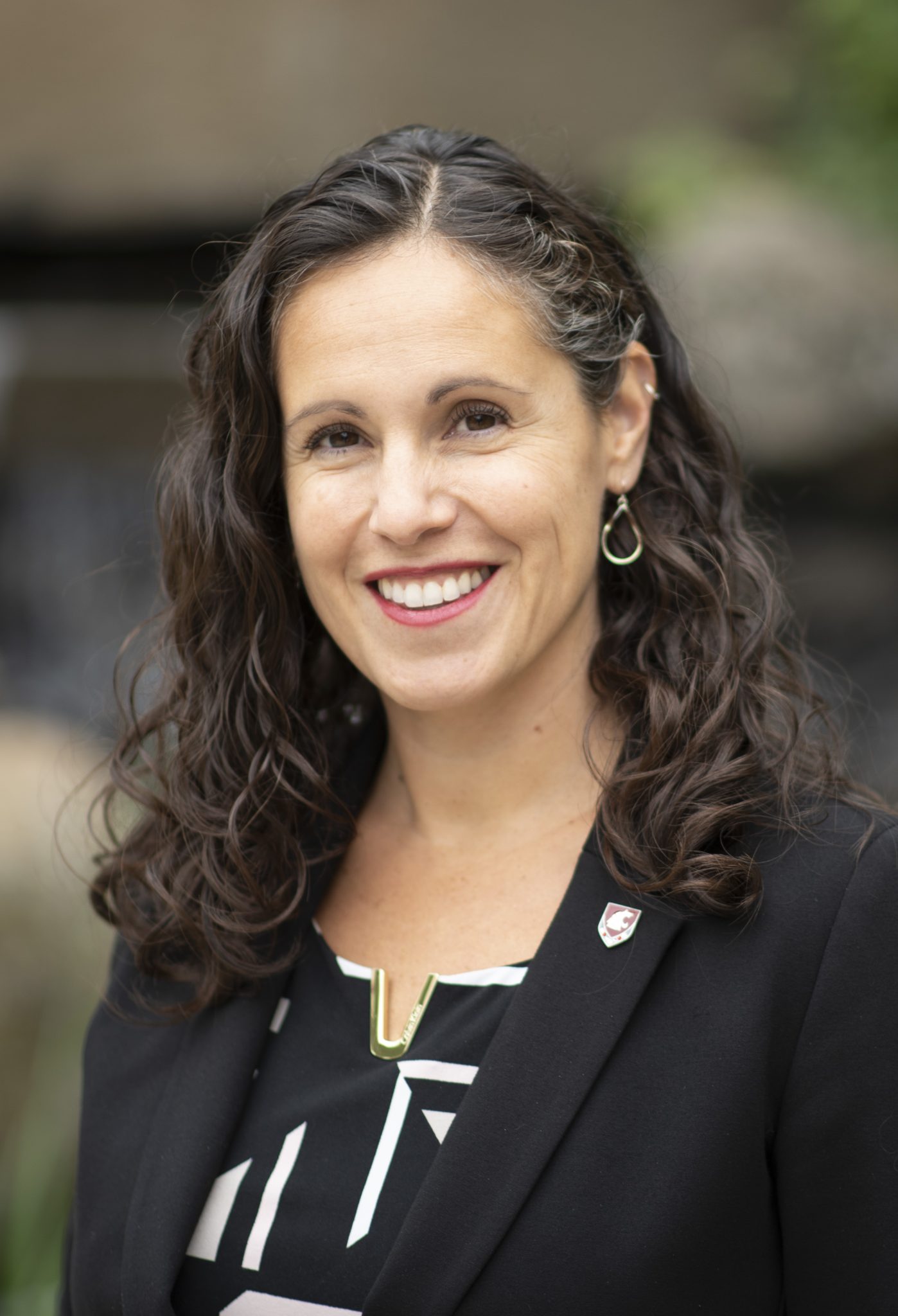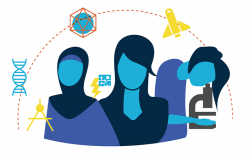Meet Celestina Barbosa-Leiker, Psychologist, Researcher, and Notable Woman in STEM
Recently, we had the opportunity to interview Celestina Barbosa-Leiker, Executive Vice Chancellor for Research and Administration at Washington State University Health Sciences Spokane, to learn more about her career path and work. Read on to learn more.
Can you explain to us what you do?

I am a researcher at Washington State University (WSU), and I focus my research on the psychological experiences of people who have a substance use disorder so that healthcare providers can do their best to take care of them. I also research older adults to see how their stress, depression, and prescription drug use impact how they age. I serve as Vice Chancellor for Research for the WSU Health Sciences Spokane campus. This leadership position means that I get to help advocate for and grow research in nursing, medicine, and pharmacy. I am a Latina faculty member so mentoring students of color and working on diversity, equity, and inclusion practices are also a big part of what I do.
What was your education and/or career path? How did you get where you are now?
I went to several community colleges after high school because I didn’t know what I wanted to study or how to pay for college. Even though I earned great grades in high school, I just wasn’t ready to go to a 4-year college. So, I worked full time and took classes when I could afford them. I worked with people who had developmental disabilities, people who had dementia, people who had a substance use disorder. All these work experiences led to me wanting to get a BS, MS, and PhD in Psychology so that I could help people with psychological issues. Science is essential for helping those in need and so I chose to focus on psychological research related to health disparities.
What/who were some of your most important influences that guided you to STEM?
I had a professor when I was an undergraduate student who guided me through my first research study. When I excitedly came to him with the study results, he said, “You have just been bitten by the research bug!” That was the start of it all (thank you, Dr. Michael Murtaugh)! Since then, I have had countless mentors throughout my career who have supported my career trajectory. Without my mentors, I would never be where I am today. I am now in the wonderful position to serve as a mentor to others and I love it!
What is your favorite part of your job?
I love sharing all the wonderful research going on at WSU with residents across our state. I also love helping connect researchers with one another. With my research, I love it when I get to analyze data. I look at a dataset full of numbers and know that there is a story in there somewhere, and statistics helps me uncover what that story is.
What do you consider your biggest achievement in STEM?
There are very few Latina professors in this nation. That I am a tenured Associate Professor and Vice Chancellor for Research is my biggest achievement. Students of color need to see professors who look like them so that they can realize their dreams of advancing in STEM. In a leadership position, I get to bring a different voice to the table when decisions are being made. I offer a different perspective and I am valued for that. Not everyone gets these opportunities, so I work very hard to expand these opportunities to others. I mentor other women researchers and researchers of color and when I get to see them achieve — that is the best feeling! I am currently on the board of the Washington State Academy of Sciences and current chair for the Diversity, Equity, and Inclusion (DEI) committee. I am proud that I get to serve the state in this way, and I will work hard to promote DEI within our state’s academy.
Are there any stereotypes about women in STEM you’d like to personally dispel?
When I was a graduate student, me and my friends were in Graduate Women in Science and we had shirts made that said, “THIS IS WHAT A SCIENTIST LOOKS LIKE.” We would wear them at community events and so many kids would come up to me and say, “You’re a scientist?! No way! A scientist is an old man with crazy white hair!” It’s important for all of us who don’t fit that mold to be front and center so that we can continue to grow the STEM workforce.
What unique qualities do you think girls and women bring to STEM?

Diversity of thought is key to innovation. The more voices and perspectives we have in STEM, the greater the advancements will be made in STEM. If we continue with the status quo, and directly or directly encourage and enhance only boys and men in STEM, we lose half of the potential workforce. Girls and women are missing from the data that is collected by the researchers doing the studies. We must change that to truly make advancements in STEM for all people.
How do you see science, technology, engineering, and/or math working together in your current job?
Research in healthcare is a great example. Research with wearable devices to monitor your health, smart homes for those who want to age in place, innovative equipment to help improve the quality of life for people suffering from illness and disease. I see STEM in action every day to help better the lives of so many people.
What would you like to say to young women thinking about beginning a career in STEM?
Go for it! Try it out. Figure out what you love and don’t love about it. Change your mind if you want to. It’s OK to succeed and it’s OK to fail. Try it all. Ask questions, take up space, work hard, and find a supportive team. If you are the only girl or woman in a class or on a project, they are lucky to have your perspective.
What do you think is unique about Washington and the STEM careers in our state?
We live in a great state for STEM careers. STEM is supported and encouraged and is seen as an integral part of our education. There are a lot of opportunities for kids to get involved in STEM organizations. I am on the board of Mathematics, Engineering, Science Achievement (MESA) Spokane and I love that there is a local STEM career pathway program for kids from underrepresented populations.
Can you share a fun fact about yourself?
I never thought that I would be where I am today. It took me a long time to realize that going to graduate school could even be an option for me. I never dreamed that I would have a PhD. Even after I earned it, I never thought I would succeed in academia. I would have laughed at you if you told me I would one day hold a leadership position at my university! I just didn’t think I would be allowed to do what I am doing today, or that I would succeed at it. For a very long time, I just felt lucky that I somehow kept advancing in my career. I now realize that while I am indeed lucky to have privileges that allow me to work very hard at my job (a very supportive family and group of friends, amazing mentors), my university is also lucky to have me!
